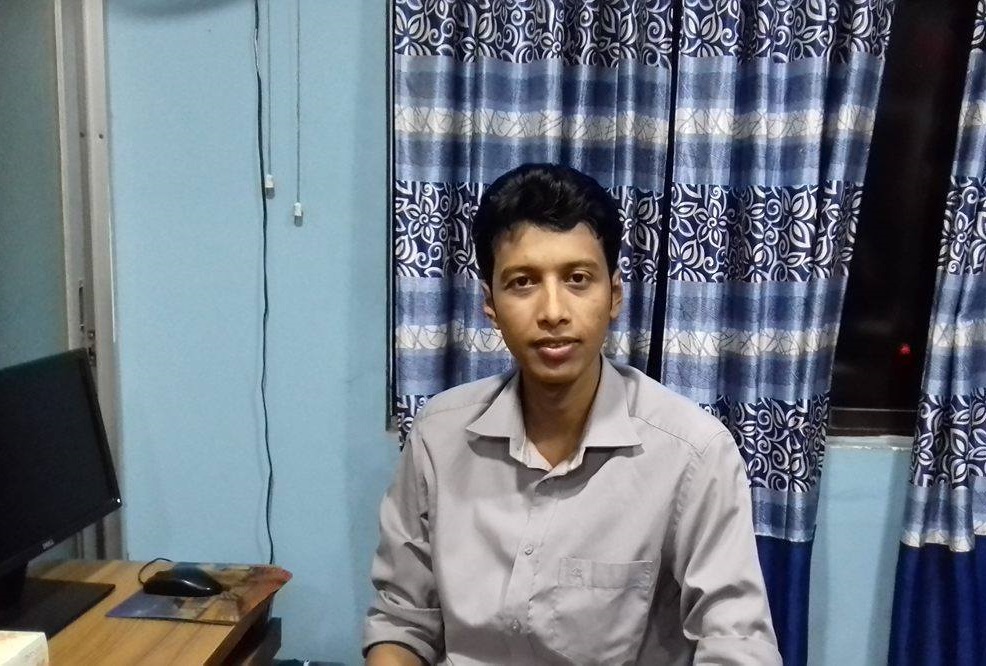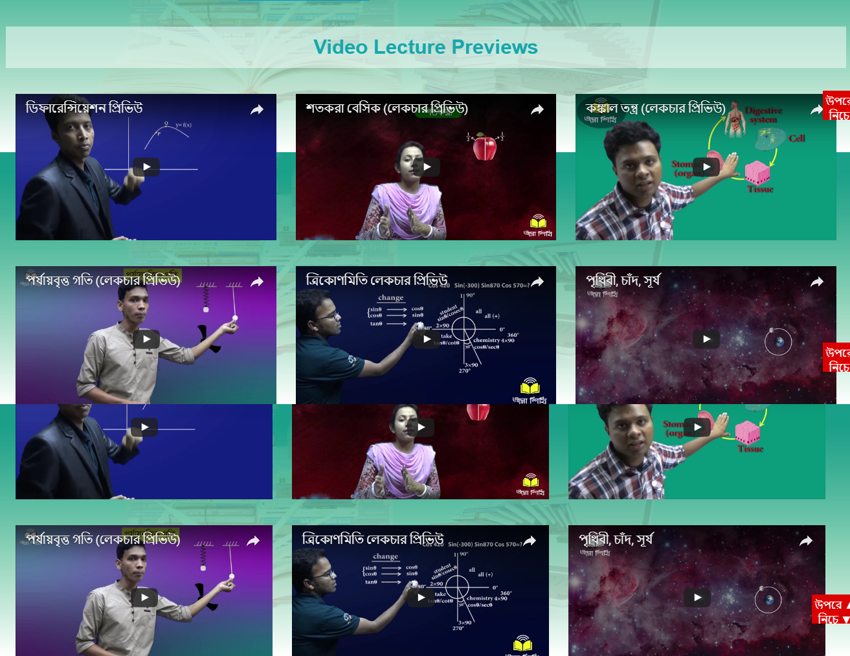
Equitable quality education is a growing challenge in Bangladesh. The country has made noteworthy progress in terms of access to universal primary education as well as improving overall literacy rate but a growing inequality in the quality of the education is threatening to undermine the benefits.
A large part of the country suffers from an unbridgeable lack of quality teachers as well as access to opportunities that students in Dhaka and other major cities take for granted. To give an example, think about university admission test. Hundreds of thousands of students come to Dhaka and other major cities like Chittagong to enroll in university admission coaching every year. It has given birth to a burgeoning admission coaching industry worth millions of dollars a year.
For many parents in remote areas, this is an expensive affair. Living in a city like Dhaka for 4 to 6 months and then attending coaching classes is quite a costly deal. Moreover, it often does not lead to the satisfactory outcome because students who come from outside Dhaka often struggle to adjust to the new lifestyle in Dhaka. By the time they come to term with the new environment, it is often too late. For others who have easy access to this facility it often proves insufficient and requires extra care through private tuition and all.
The scenario is no better for secondary and higher secondary education. Lack of good teachers is a huge challenge for schools in remote areas. Access to quality education materials is still a challenge. This is where Eshosikhi.com, an Edtech startup based in Dhaka comes in.
The company has been working quietly over the past few years to build an edtech platform in order to tackle the challenges I mentioned above. As startups with more opportunities to expose themselves hog the limelight in Dhaka’s fledgling startup scene, companies that tend to work quietly often goes unnoticed. Esho Sikhi is one of those companies.
Background
Founded by four Dhaka University graduates, Esho Sikhi aims to bring quality education at everyone’s fingertips. Through its web-platform as well as DVD format, the company is offering interactive multimedia lectures, practice materials and constant guidance from teachers to students across the country. The ambition is to ensure the access to quality educational content and material for all students regardless of geographic location.
Currently, it covers entire university admission test preparation curriculum. Users can subscribe to its online platform for a one time fee for 6 months, and also can get an encrypted DVD for one user.
Esho Sikhi claims that they offer complete solutions to their users. The materials they provide not only carries video lectures but also repeatable online model tests. Moreover, there are teachers available online all the time for advice and guidance.
“Quality of our content is very high”, says S M Tanveer, Co-founder, and CEO of Esho Sikhi. “We have the best teachers in the market and we have used high-quality graphics technology to make the videos interactive and pleasant to watch. Apart from that, we have nominated teachers for different subjects and disciplines in our Facebook groups and website for helping the students anytime. Students can take instant help from these teachers if they come across any challenges just by sending photos of their problem.”
Last year the company raised an undisclosed amount from BD Venture which it has been investing in preparing the contents. “We now have entire university admission test preparation materials prepared and almost done with job preparation content,” says Tanveer.
Focusing on admission test and job preparation segments is a distinct strategy from other Edtech companies in Bangladesh as well as in other neighboring countries. For instance, in India, one of the largest Edtech company is Byju’s which mostly focus on K12 education.
Tanveer explains the logic behind his distinct strategy. “We are focusing on admission test preparation and job preparation segments because there is a ready market for this. And this is the most tech savvy segment in the market as well. On the other hand, use of technology for education by the 8th graders and 9th graders is not common in our culture yet and parents are often conservative about it.”
Tanveer has been involved in education related business since his early university days. He studied Genetic Engineering and Biotechnology (2006-07 session) at Dhaka University. He has been passionate about education for a long time which eventually led to the starting of a University Admission Coaching Center which is now quite popular in Dhaka as well as has branches in few more major cities.
Out of University, he never thought of pursuing anything else but forging his own path. While working in the coaching business, he came to see the challenges students often face in admission coaching time. “It is expensive for many parents to send their kids to Dhaka for at least three months to stay and study for admission preparation. At the same, it is also ineffective in many cases for different reasons”, says Tanveer. That’s when he came up with the idea of Esho Sikhi which, in a sense, will disrupt his existing coaching business. However, Tanveer is unfazed about it. “Our goal is to ensure that everyone has the access to quality education.”

A big opportunity and a hard problem
Education is a difficult and complex problem. In the context of Bangladesh, pulling off a digital education business sounds lucrative but it is no easy feat. Bangladesh has a huge number of mobile phone users. The internet usage is also rising every day although a significant percentage of people mistake internet for Facebook alone.
For Esho Sikhi, creating market awareness and convincing people to pay for online education are going to be two major challenges. It is likely to take a long time which will require both significant financial muscle and discipline. “While many students like our work, it is still hard to convince people to pay for something online,” says Tanveer. “Most students deem that anything digital should come for free. Moreover, the internet and using a device is not that widespread a case for K12 students yet and also parents are not yet convinced about the effectiveness of digital medium as a tool for education so our strategy for that segment is to go slow. “
On the other hand, making quality content is an expensive chore. There are multiple aspects to it. You need good teachers. You need great technical expertise as well as good technological devices. The other aspect, your platform is equally critical as well, your platform needs to be smart, interactive and user-friendly to give a good experience to your students on which end Esho Sikhi will have to work further. Technology-wise, Esho Sikhi’s online platform is far from great.
Edtech is a big business. “Education is one the most potential sector where there is scope for solid innovation and big business”, says investor and CEO of Telenor Health, Sajid Rahman. But it will take significant effort to get there.
Secondary and Higher Secondary education market is huge in Bangladesh. Millions of students appear for both exams every year. Then there is job preparation market which is also significantly big and growing consistently.
State of the union
Over the past few months, Esho Sikhi has been investing in preparing the contents. It has just started marketing its service from this admission season by coupling its online platform with DVDs to help students who do not have high-speed broadband connections to view lessons offline. But everyone can still take online tests and avail helps from virtual teachers.
Pricing is relatively simple. For admission test related courses, you can buy a six-months account for all subjects that will allow you access to contents on both its website and DVD copy. Or you can buy contents for just one single subject. The model is similar to the job preparation courses.
The startup claims that it already has a few thousand paid users and will reach operational break-even in the next few months. “One of our major investment is in content. If we can get that prepared, our regular operational cost will come down significantly and we will be able to allocate more budget to marketing and other areas, says Tanveer.” Esho Sikhi is currently a team of 14 people apart from teachers who work on the part-time basis.
The future
While Edtech is a lucrative and highly potential sector, it will take time and dedicated effort to break into the market given the nature of tech adaptation in Bangladesh. Moreover, it is an investment savvy business where you would need to invest in building up the platform as well creating the market. But investment does not come easy in Bangladesh. Bangladesh has a fledgling VC culture and investments are happening at relatively slower pace than many other similar markets.
Esho Sikhi seems to understand some of the challenges it may face. While it aims to be the go-to-platform for digital education in Bangladesh, it does not want to hurry. “Our goal is to generate revenue and make ourselves self-sufficient at least for a while before going for another round of investment” quips Tanveer. If the startup manages to do that it will prove its viability in the long run.
While slow and steady seems like a good strategy, it is equally risky for any tech venture where competition can wipe out your business overnight. There is a high chance of local and international business coming into the space and creating steep competition for Esho Sikhi given the apparent potential of the sector. However, Tanveer seems not worried about competition as ‘long as we do our job well.”
Esho Sikhi has plans to raise another round of investment and expand its coverage of courses as well as the market but it is not in a hurry about raising money and instead, “we want to make sure that we have solid footing in the market,” says Tanveer. Esho Sikhi has already started working on preparing content HSC level courses but it is still at the early stage, university admission and job remain a key focus for now.
(Mohammad Tashnim contributed to this story)
